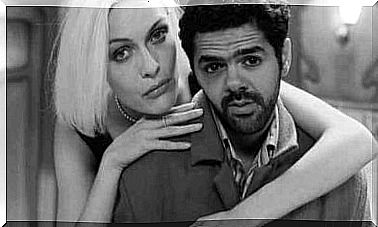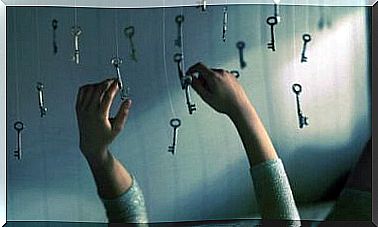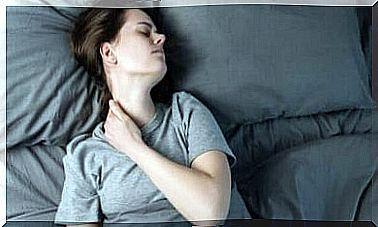Emotional Hunger – The Preferred Cover Of Anxiety
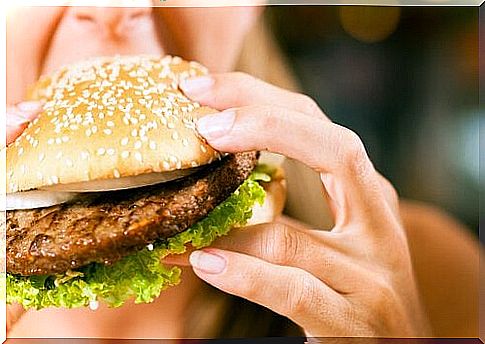
We all know how hunger feels. When you have an empty stomach and have to eat something, you are hungry. Of course, you know how to identify situations where you feel hungry. But do you know how to distinguish between true and emotional hunger?
Experts do not recommend going hungry. They also do not advise us to go longer than four hours without eating, even if it is just a snack. But you do not always eat because you are hungry. Sometimes you eat to cover your emotions. Stress, sadness, anxiety… you try to hide them under unhealthy food that makes you feel worse in the long run.
Do you want to put an end to the vicious circle of eating to feel better and then feel bad because you eat? I encourage you to learn to distinguish between emotional hunger and hunger caused by not having enough energy in your body.
Take the bull by the horns and learn to identify the signs of emotional hunger. Then you can get to grips with your life and your eating habits. Let’s take a look at the characteristics of emotional hunger.
Emotional hunger will never ask you to eat a plate of vegetables or a salad. Normally, it urges you to eat something high in calories and low in nutrients. You crave sweets or foods high in saturated fat. In other words: junk food.
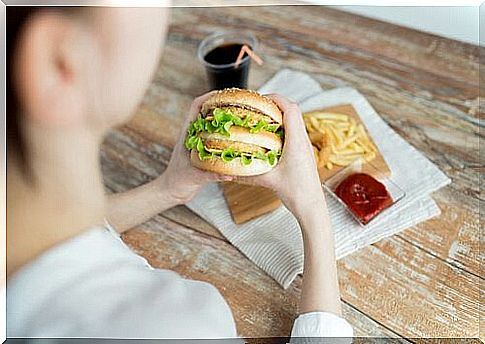
When you notice that you are hungry, you usually know how much food you want to eat. With emotional hunger, however, you can eat until you are full. This type of hunger inhibits the feeling of satiety, and as a result we do not feel full until it is too late.
This void is not found in the stomach, but responds to an emotional imbalance. Instead of finding out what the problem is, however, it was buried under all the food we eat in an awkward attempt to feel better. The relief is temporary and lasts only as long as it takes to digest the food. After a while, we feel worse than ever.
People rarely get angry with others. It is a type of ritual that you do in solitude. Loneliness can in itself be the cause of binge eating. But you can also do it at events such as weddings or birthdays to hide your feelings.
You know you do not have to eat that bag of chips. It will raise your cholesterol and is full of saturated fat, and you are not even hungry. You know all this, but you can not beat the craving. When we eat this type of “food” we feel guilty. We feel the need to punish ourselves for losing control.
When you eat to satisfy your emotional hunger, you do so without thinking. It’s impulsive. You run to the store and buy everything that looks good for the moment.
You have to work, you promised to go to the gym or study… but you do not feel it and you end up staying at home. Deep down, you know you have not done what you promised. Anxiety will not delay in knocking and keeping you company.
That’s when you visit the fridge. You are looking for something you crave, something that can calm you down. When you eat something that is bad for you, you realize that you feel worse. You have feelings of guilt for two things – that you did not fulfill your obligation and that you gave way to your craving.
Furthermore , you realize that you did not feel anxious while eating. So you go back to the fridge for more… and you repeat the process until you are very, very full.
All of these traits are linked to emotional hunger. You just have to look for them in your own habits to be able to identify the problem. Then it’s time to counter the problem. Here are some ideas that may help you.
1. Try to eat something healthy
If you want to eat but think it’s an emotional hunger, you can try something useful. If you are not physically hungry, you will either not eat or be full at once. Your body will say that it is not what it wants. Then you will see whether the hunger is genuine or not.

2. Think about what could be causing the problem
When you know that you are only experiencing a craving for food and not true hunger, think about what could be the root of the problem. Are you worried about your job? Relationship problems? Have you been running all day without stopping?
Exercise
Exercise helps in two ways. First, it is a way to release negative emotions. Exercise produces endorphins that improve mood. Endorphins also help fight anxiety. After the workout, your body will need energy and love the sight of some healthy food.
4. Make a meal plan
This will help you avoid impulse eating. If you keep track of when and how you want to eat, you will have a better understanding of when you actually need to charge the batteries. This will make it harder for your body to fool you. Furthermore, you will have already chosen what to eat, so the chance that it is an intelligent choice is higher.
5. Give in to the craving from time to time
Although emotional hunger usually responds to junk food, it is good to give in to the craving from time to time. Just make sure it does not become a habit.
Eat with other people
When you eat with others, you eat more slowly. You will probably not focus on your problems either. Another benefit is that you share the enjoyment between the company you have and the food you eat. Therefore, it will not be necessary to eat too much to feel better.

7. Do not overuse food as a reward
Sometimes when you have a bad day, you try to make yourself feel better by eating junk food. You think “I deserve this”. If you get used to compensating for a bad day with junk food, you will not be able to focus on developing healthy eating habits.
8. Get help with the underlying emotional problems
Whether it is a friend, family member, partner or expert, you should find someone who can help you. Your attempts to hide the problem and deal with it alone have not succeeded.
9. Think before you buy junk food
Why do I buy this? Do I really need it?
10. Bring a shopping list with everything you actually need
And do not buy anything other than what is written on the paper. We do not usually write down our appetite; they tend to be impulsive actions.
The best technique is definitely to be aware of your body’s true needs and to know if they match your physical or emotional body. It is important to proactively deal with difficult emotional situations. You need to find out the cause and then decide how to deal with it.
Instead of letting your emotions run wild, you should work on having a physically and mentally healthy life.





